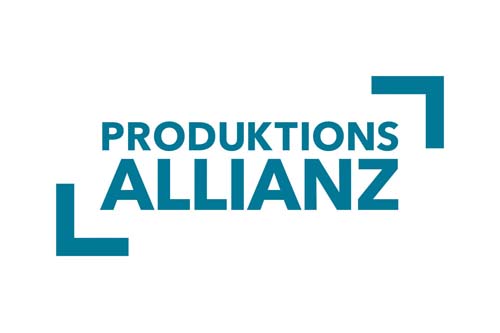Berlin, 18 July 2024 - The collective bargaining parties Allianz Deutscher Produzenten - Film und Fernsehen e.V., the trade union ver.di and the acting association BFFS agreed on qualified key points of a new umbrella collective agreement for film and television professionals in the night of 17 July 2024. In the agreement, the parties agreed that previous collective bargaining regulations on flexible working hours of up to 12 hours per working day and up to 60 hours per week would be retained. At the same time, the parties agreed on a zero pay rise for the crisis year 2024 and a gradual 51% pay increase until the end of 2026.
Björn BöhningCEO and Spokesman of the Board of the Production Alliance:
"The collective bargaining round was characterised by the economic crisis in the film and television industry and therefore took place under difficult circumstances. We have fought hard in a total of eight collective bargaining rounds since late autumn 2023 and have now achieved a breakthrough. For the employers, it was particularly important to maintain flexible working hours and hold back on pay increases. It is now clear that it is still possible for productions to use working hours that are appropriate to the nature of the project and that a zero pay rise has been agreed for the crisis year 2024. This secures jobs in Germany's film industry."
The parties agreed on new working time models outside of a four-day week, which include higher bonuses for overtime, reduced billing options and one paid day off for every 21 days of filming. This compromise creates more room for manoeuvre for employees, but still enables productions to have a reliable and customisable shooting schedule.
At the same time, Produktionsallianz, ver.di and BFFS agreed on a new collective agreement on a company pension scheme, which provides for capped employer contributions to employees' retirement provision.
Another new feature is a collective agreement for up-and-coming film makers, which promotes up-and-coming productions and supports their entry into the labour market by means of reduced fees.
The new collective wage agreement runs until 31 August 2027 and the collective pay agreement until 31 December 2026.
Björn Böhning continues: "We have reached an agreement that is painful in times of crisis, but justifiable. Especially with the 48-month term of the collective agreement, producers now have planning security. Together with the support provided by the new film subsidy reform, producers can look to the coming year with confidence. The social partnership in the film and television industry has proven itself as a community of responsibility in tough times."
The parties to the collective agreement will now formulate the qualified key points and submit them to the committees for resolution.


